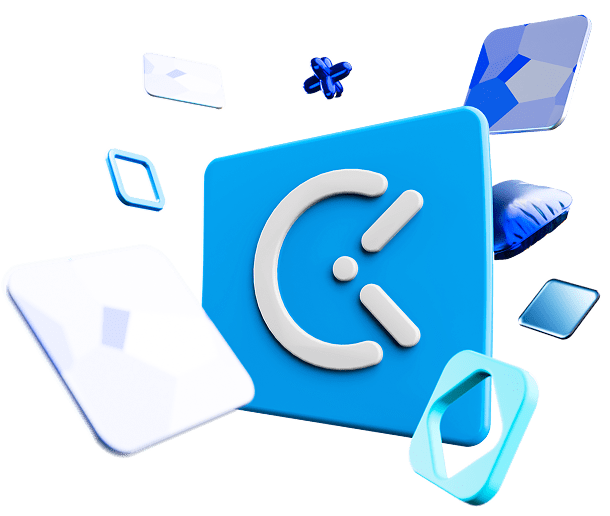As a lawyer, there’s probably nothing more valuable to you than your time. It’s only natural — for most attorneys, compensation is calculated based on billable hours.
Still, specialized legal software can be expensive, and choosing the right solution for your firm isn’t easy, especially on a small budget.
Luckily, handling billables has never been easier, even for busy lawyers with many different clients. That’s where attorney time tracking software comes in.
To help you make an informed decision, here’s a breakdown of the top 5 law firm timekeeping software solutions.

WHY TRUST US?
The apps we talk about are selected, tested, and written about by human reviewers who follow strict review and editorial guidelines. We pick solutions that are practical, purposeful, and can offer real value for the specific use case or business context we’re covering — while also being justified in their pricing. Our methodology is transparent, clear, and available to everyone:
1. Clockify by CAKE.com — best for setting hourly rates and tracking billable hours
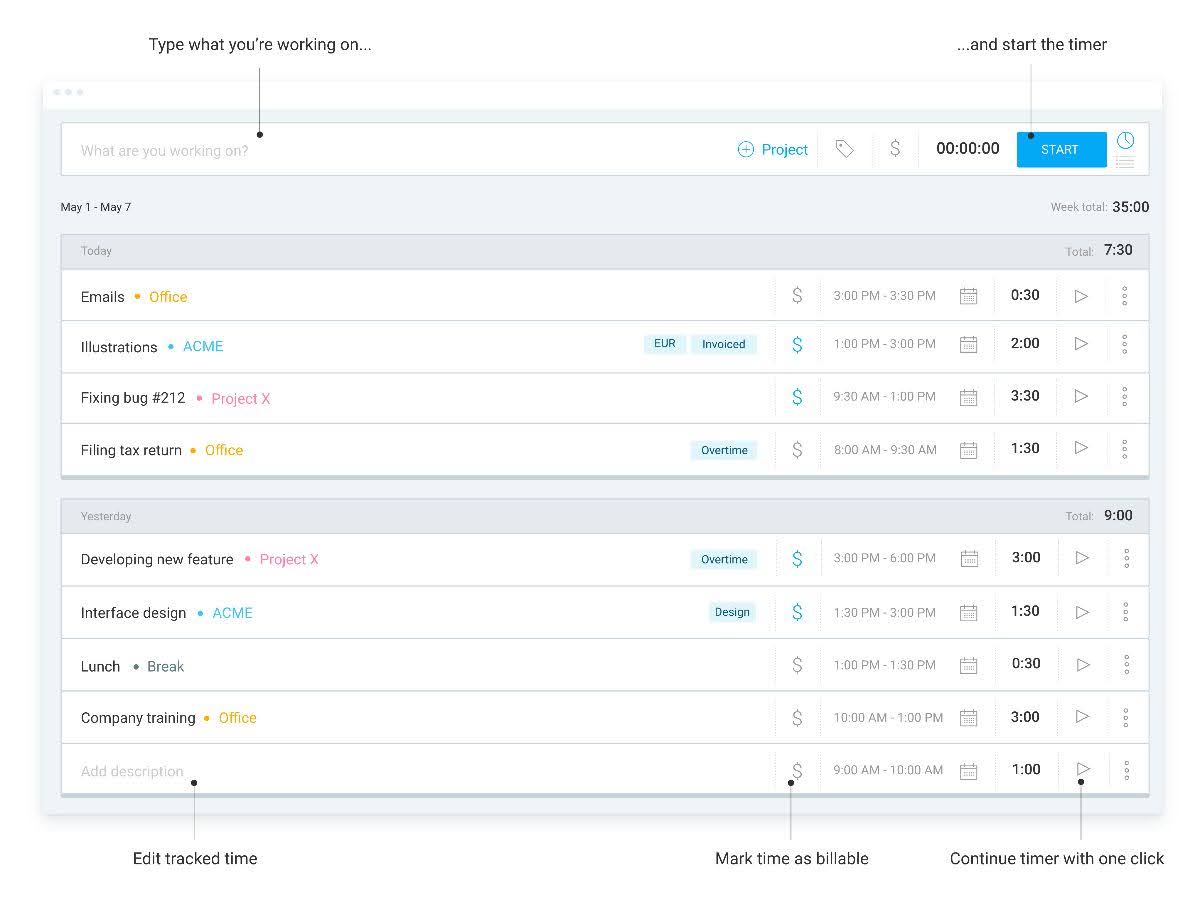
Clockify by CAKE.com is the ideal attorney time tracking app for small-to-medium law firms because it provides all the time tracking and billing features you need at an agreeable price.
The tool lets me track time spent on different tasks with a simple timer. To organize my time in Clockify, I can label each case or client as a separate project.
With Clockify, I can also:
- Mark tasks as billable and non-billable,
- Set billable rates for each client, and
- Choose the hourly rates for every employee.
With information about your employees’ hourly rates and billable hours, Clockify can automatically generate visual reports.
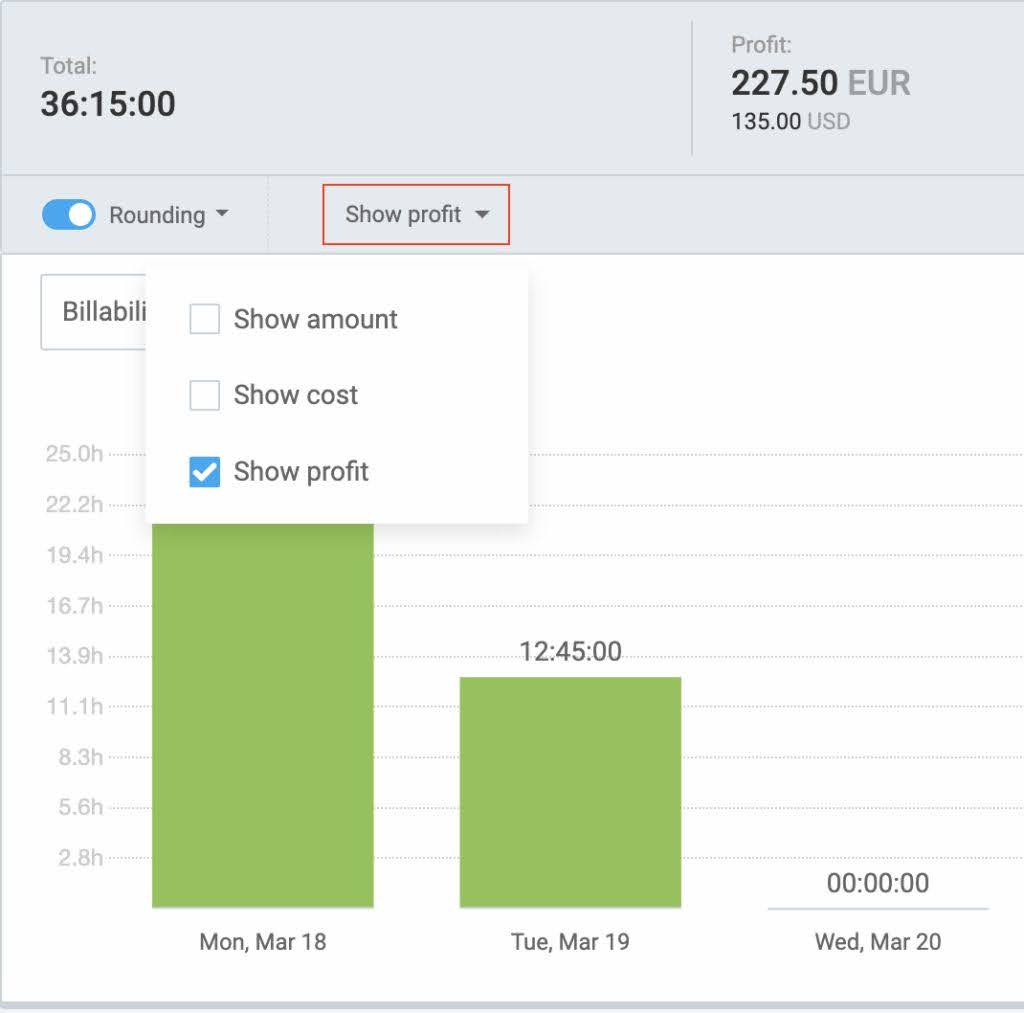
Try Clockify by CAKE.com for free
These reports show which clients generate the most profit, helping you allocate manpower and focus accordingly. Plus, the reports showcase my top earners who bring in the most billables.
You can also share time reports with clients, showing them precisely how you spend their legal budget.
Also, Clockify allows you to:
- Generate invoices based on tracked time automatically,
- Send invoices to clients directly from the platform, and
- Label invoices as void, partially, and fully paid.
Top Clockify pro: Tracking billable hours at the click of a button available in the free plan, packed in an intuitive interface.
Top Clockify con: Multiple currencies are not available in the free tier.
2. Clio — best for document templates and forms
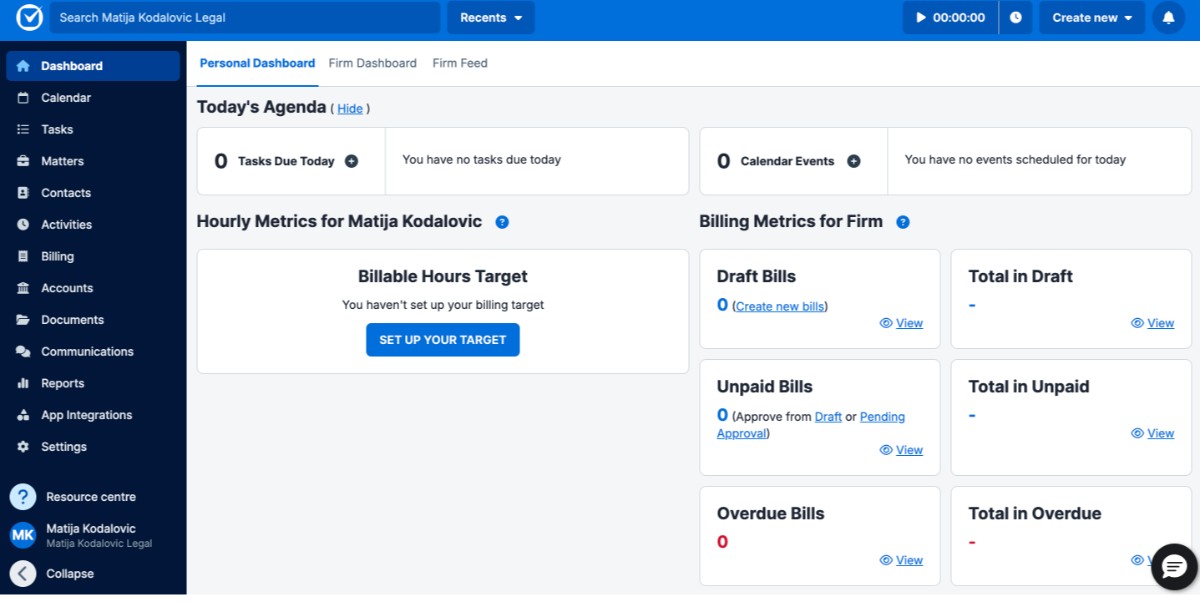
Clio is a management platform for law firms, with features related to different aspects of your legal practice.
In terms of time tracking, Clio provides several options, as you can:
- Import time entries from documents, logs, notes, and calendar events,
- Start a timer when you begin work on a task, and
- Add time entries from client communications via email.
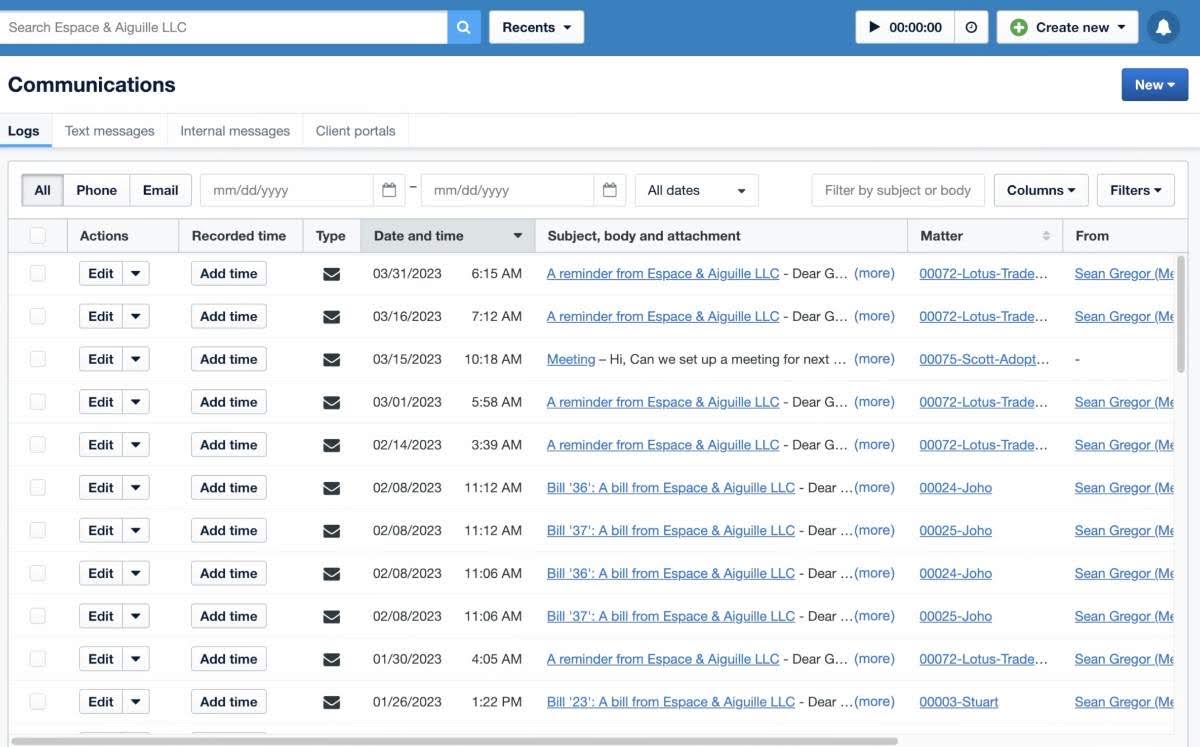
Besides time tracking, Clio offers many functions for managing your law firm, including:
- Task management,
- Collaboration,
- Payment processing,
- Financial reporting,
- Billing, and
- E-filing.
💡 CLOCKIFY PRO TIP:
Want to get better at managing the heaps of emails you receive as a lawyer? Check out our guide to email management:
As a result, Clio is an excellent choice for huge law firms, with hundreds of lawyers who handle countless clients.
However, Clio is far from a cost-effective choice on a smaller scale.
At a premium price, it provides too many features small firms don’t need — from Google Ads management to AI insights on document drafts.
Top Clio pro: Comprehensive law firm management tool with plenty of legal-specific features.
Top Clio con: An overpriced, complex solution to a simple problem if you’re looking for accurate time tracking and billing software.
3. Toggl Track — best for third-party integrations
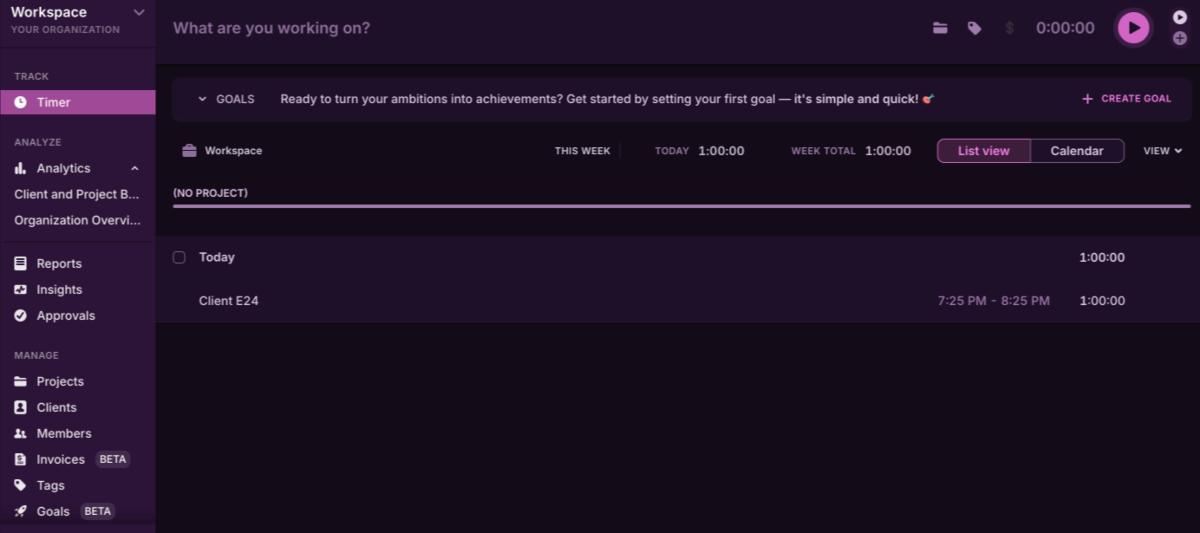
Compared to dedicated case management software, Toggl Track is a much simpler solution — though with many supported third-party integrations.
After a few days of testing the app, I concluded that Toggl Track provides businesses with a combination of automated time tracking, visual reports, and client invoicing features.
In my opinion, Toggl Track wasn’t designed specifically for lawyers, so it lacks unique law-oriented features.
However, small law firms will appreciate the platform’s ease of use and affordability — especially compared to complex and pricey law firm management software.
With Toggl Track, lawyers can track time via a simple timer or manually log hours in timesheets.
Based on your firm’s logged hours, Toggl Track creates visual reports you can use to:
- Spot overachievers and less productive team members,
- Determine which clients are profitable, and
- Create invoices for clients.
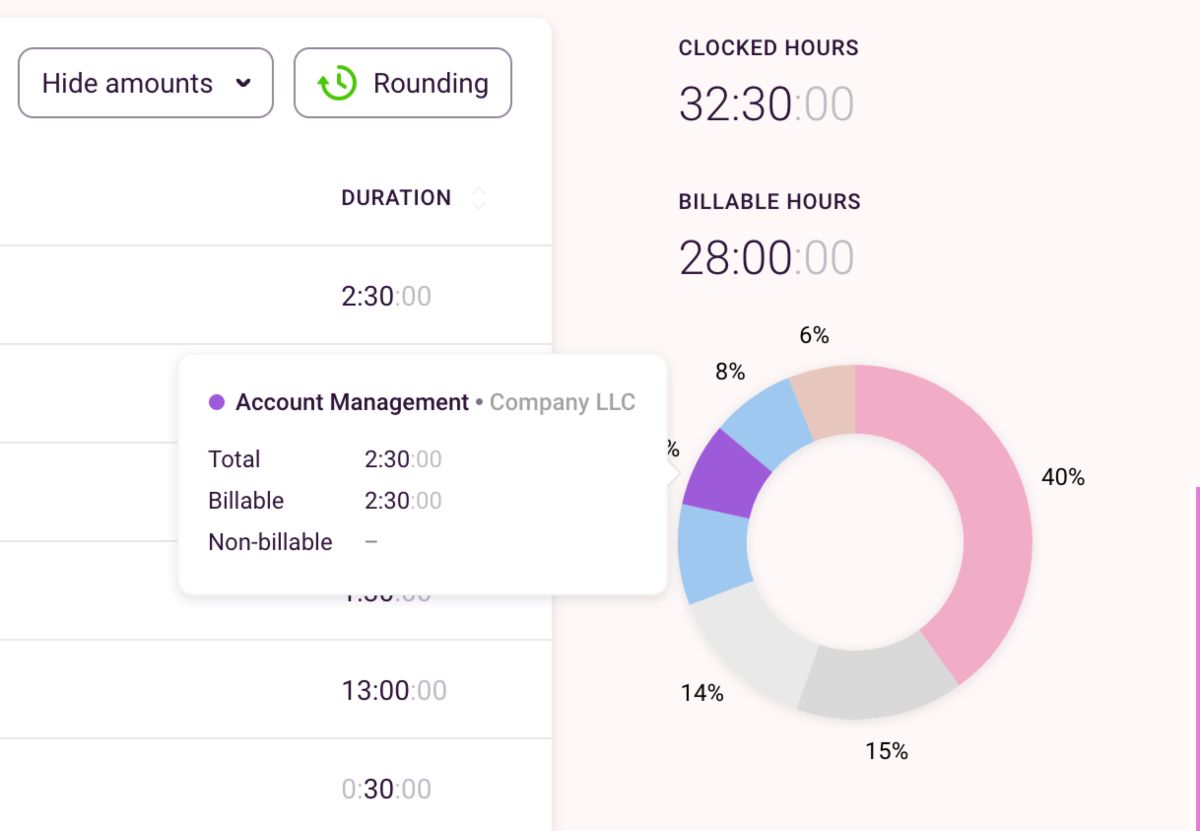
However, as of October 2024, its invoicing features are still new and being tested in beta. Also, you can only download invoices as PDFs and share them with clients by other means — there’s no way to send invoices directly from Toggl Track.
Top Toggl Track pro: Easy-to-use timesheets for logging hours.
Top Toggl Track con: Billing features are available only with more expensive subscriptions, and there’s no option to share invoices from the app.
4. MyCase — best for case management
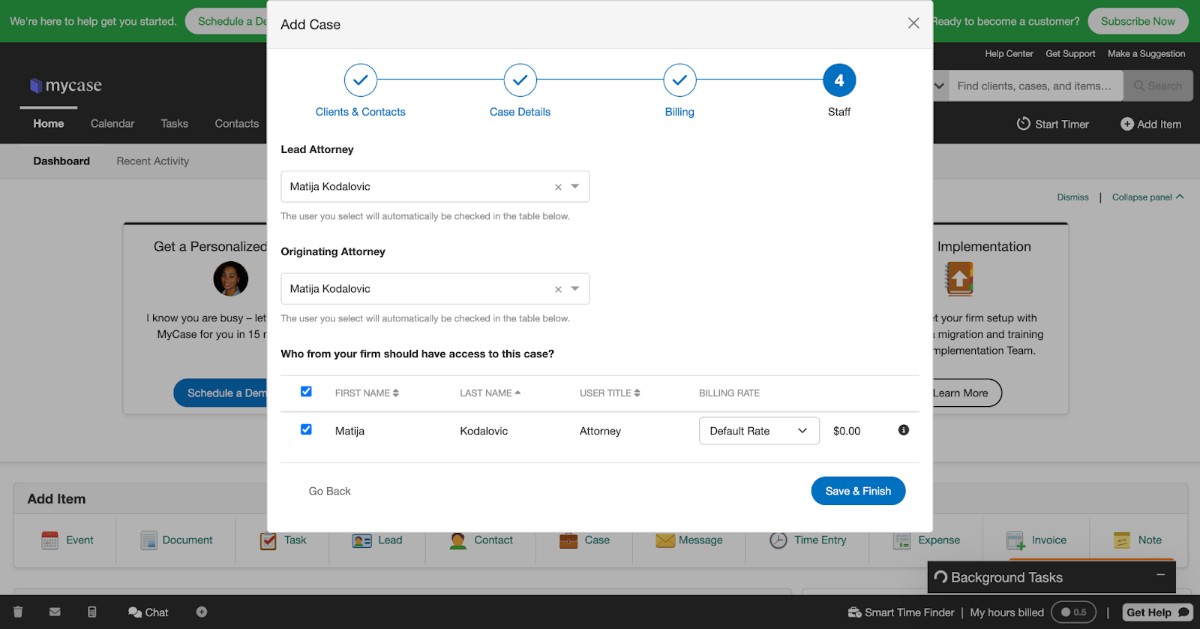
Similarly to Clio, MyCase isn’t purely timekeeping software for lawyers — it’s a full case management platform with some time tracking features.
You can use MyCase to manage every aspect of your cases. For starters, you can:
- Note any relevant client and contact information,
- Provide necessary case details,
- Add billing details, and
- Assign attorneys to the case.
After I created this initial case setup, I could use MyCase as a central database for case documents, associated tasks, my calendar, and various contact information.
While the platform offers plenty of lawyer-specific features, its time tracking options are limited — especially compared to other tools on this list.
There’s no automatic time tracking in MyCase. You can only enter billable hours for each task and case in a timesheet.
On the other hand, MyCase provides more in-depth accounting features than other time trackers. You can use its billing dashboard to:
- Generate and share invoices,
- Request trust or retainer payments,
- Deposit payments into a trust, and
- Filter invoices based on payment status.
MyCase is particularly useful for trust accounting.
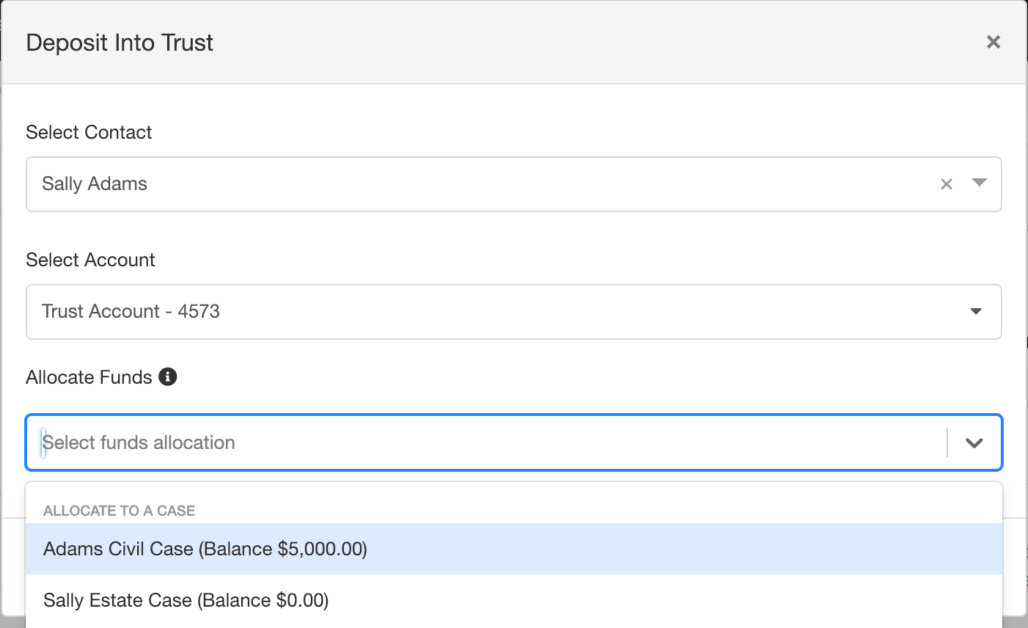
You can use it to manage client trust funds, record transactions, and create reports that show how you’re handling their assets.
Top MyCase pro: Advanced invoicing and billing options.
Top MyCase con: Lack of a simple automatic timer for time tracking.
5. Bill4Time — best for legal billing
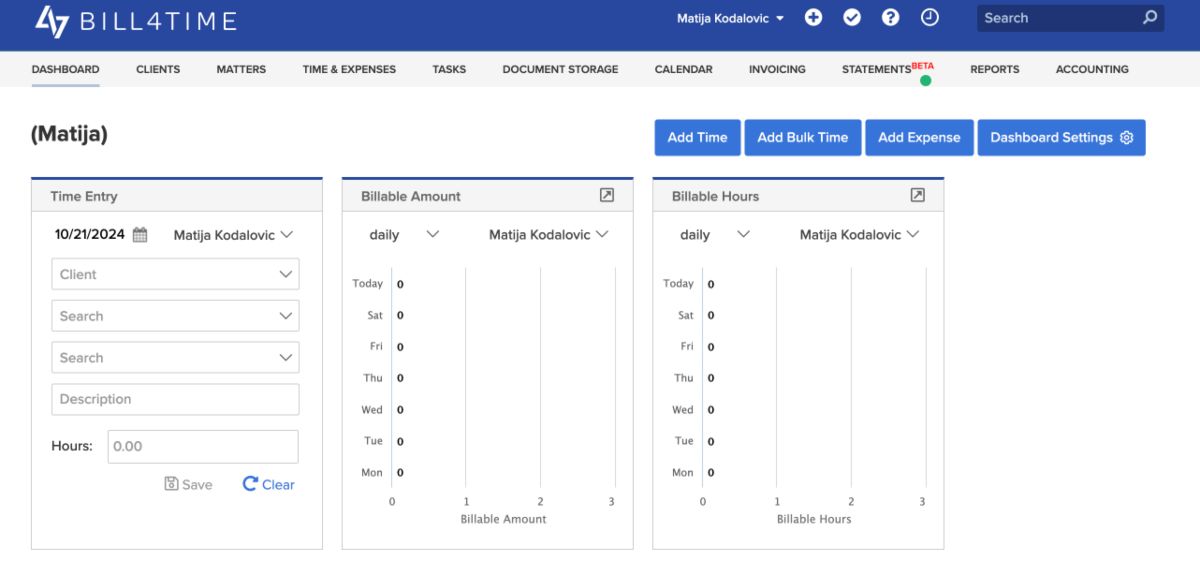
Bill4Time is a legal billing software solution, with time tracking and client management features.
When it comes to time tracking options, the platform provides an automatic timer and manual timesheet entries.
As the name suggests, it’s mainly used to track billable hours and expenses. Still, Bill4Time has some case management features for lawyers, including:
- Document storage, which allows you to filter documents by case and client,
- Client dashboard, where you can filter clients by city, state, and assigned staff member, and
- Calendar, which you can sync with your Google Calendar and import events.
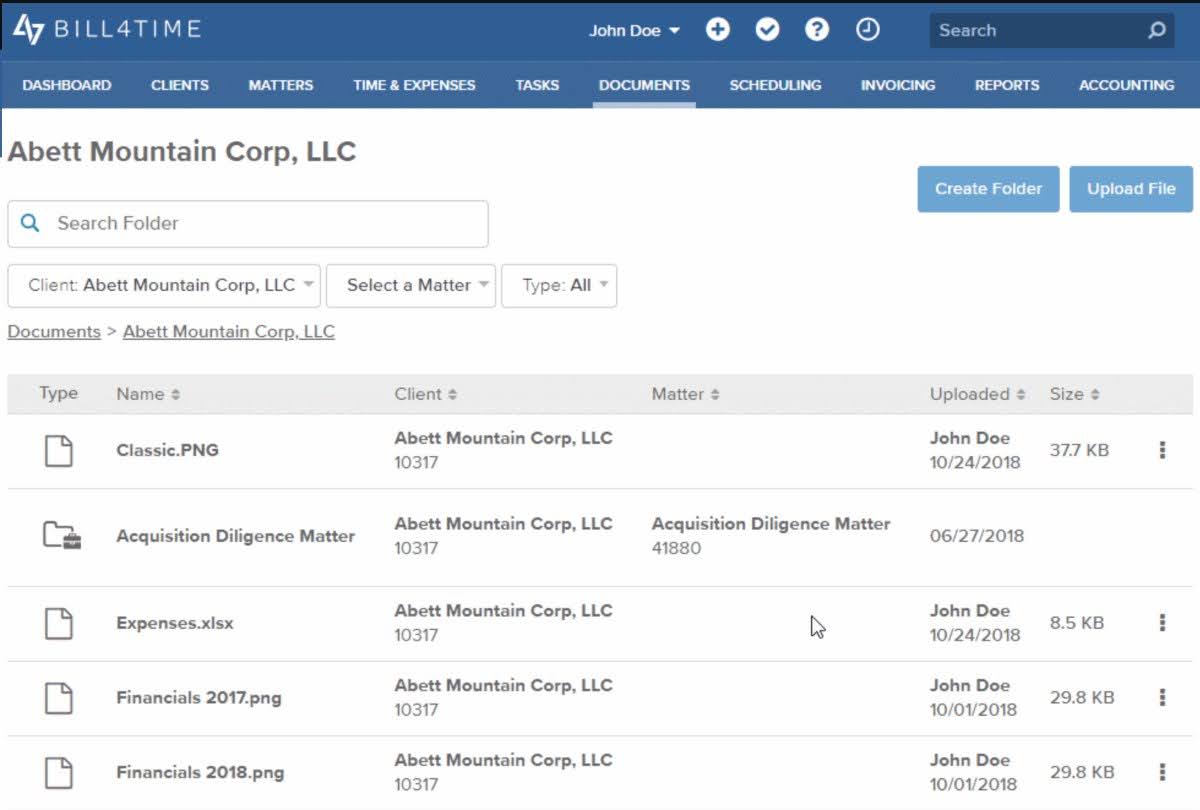
By setting labor costs for each employee and billable hours for every client, you can easily track your profitability. Bill4Time automatically generates a simple graph that clearly shows your firm’s financial state.
Despite a few handy billing options (like managing trust payments), Bill4Time isn’t a cost-effective time tracking app.
Its time tracking features don’t go beyond anything offered by a simpler, more affordable platform. And for a tool that supposedly focuses on tracking billables, it doesn’t provide more in-depth information about billable hours than a solution like Clockify by CAKE.com.
On the other hand, Bill4Time’s case management functions are far more basic than those offered by Clio or MyCase.
Top Bill4Time pro: Basic case management and client billing features for legal professionals.
Top Bill4Time con: Lack of advanced features despite pricey subscription plans.
What do lawyers use to track time?
Before lawyer time tracking software became widely available, attorneys used paper timesheets to track their billable hours.
Obviously, this wasn’t a perfect solution because they had to enter their hours manually — resulting in lots of unbillable administrative work and plenty of errors.
Instead of a mobile app or time tracking tools, lawyers commonly used physical desk clocks with timers.
Naturally, using a time tracking app is easier and less error-prone. Plus, apps like Clockify provide invoicing features, so you don’t have to manually compile invoices from your notes.
Which is the best time tracking software?
Ultimately, Clockify provides the easiest way to track billables and profitability at an affordable price — especially in a small law firm.
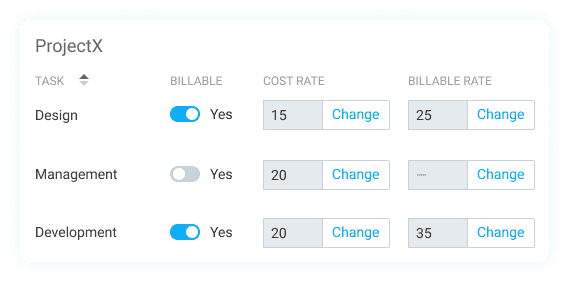
In Clockify, you can mark each task performed for clients as billable or non-billable, and then set different rates for each.
If you also set the cost rate based on your staff’s hourly wages, Clockify will automatically calculate the profitability of every client.
Clockify by CAKE.com helps you:
- Easily track time with a simple timer and timesheets,
- Quickly gain valuable insights through detailed reports, and
- Automatically generate invoices based on billable hours and share them with clients.
Clockify isn’t a bloated case management tool that presumes you’ll use it to manage the entire firm. As a result, it’s far more affordable.
With Clockify, you get everything you need in a clear, intuitive interface. You and the lawyers in your firm won’t need any previous experience with legal or timekeeping tools to use it.
If you still have questions, Clockify provides a free help center with in-depth video tutorials and articles, along with 24/7 access to support via chat, call, and email.
Stop paying for overpriced legal software.
